Foreclosure and pre-foreclosure are two terms that often stir confusion among homeowners facing financial difficulties. Understanding the differences between these processes is crucial for homeowners to make informed decisions about their properties and take necessary steps to avoid the harsh consequences of foreclosure. In this article, we will delve into the basics of both foreclosure and pre-foreclosure, explore their implications, and discuss practical ways to steer clear of these situations.
Understanding the Basics of Foreclosure
Foreclosure is the legal process by which a lender, typically a bank or mortgage company, takes possession of a property when a homeowner fails to make mortgage payments. The process typically starts after a homeowner has missed several consecutive payments.
The Process of Foreclosure
The foreclosure process typically begins with the lender issuing a notice of default, alerting the homeowner that they are in breach of their contractual obligations. From there, the specifics of the foreclosure process can vary depending on local laws and regulations.
In many jurisdictions, the lender must file a lawsuit against the homeowner to obtain a court order for foreclosure. Once this court order is obtained, the property is usually auctioned off to the highest bidder.
However, before reaching the auction stage, there are often opportunities for the homeowner to resolve the default and avoid foreclosure. Some lenders may offer options such as loan modification or forbearance, which can provide temporary relief and allow the homeowner to catch up on missed payments.
Additionally, homeowners facing foreclosure may have the option to sell the property through a short sale. In a short sale, the lender agrees to accept less than the full amount owed on the mortgage, and the homeowner avoids the negative impact of foreclosure on their credit score.
Consequences of Foreclosure
Foreclosure carries significant consequences for homeowners. Aside from losing their home, homeowners may also face the following:
- Damaged credit score: Foreclosure often results in a substantial drop in the homeowner’s credit score, making it challenging to obtain credit in the future.
- Eviction: Once the foreclosure process is complete, the homeowner may be forced to vacate the property to make way for the new owner.
- Deficiency judgment: In some circumstances, if the foreclosure sale does not cover the full amount owed, the lender may pursue a deficiency judgment to collect the remaining debt.
Furthermore, the emotional toll of foreclosure should not be overlooked. Losing a home can be a devastating experience, causing stress, anxiety, and a sense of instability for the homeowner and their family.
Homeowners facing foreclosure need to seek professional advice and explore all available options to mitigate the impact and potentially find a solution that allows them to keep their home or minimize the negative consequences.
Delving into Pre-Foreclosure
Pre-foreclosure is a phase that precedes foreclosure and offers homeowners some opportunities to remedy their financial situation and avoid the more severe consequences of foreclosure.
What Is Pre-Foreclosure?
Pre-foreclosure begins when the homeowner falls behind on mortgage payments, and the lender initiates formal proceedings to start the foreclosure process. During this period, the homeowner still has the chance to resolve the default and remain in the property.
It is important to understand that pre-foreclosure is not the end of the road for homeowners facing financial difficulties. Instead, it can be seen as a critical juncture that presents various options and potential solutions to address the situation.
Pre-foreclosure is a crucial window of time during which homeowners can explore various options, such as loan modifications, forbearance agreements, or selling the property before foreclosure becomes inevitable. These options provide homeowners with the opportunity to regain control over their financial well-being and potentially avoid the devastating consequences of foreclosure.
Implications of Pre-Foreclosure
While falling into pre-foreclosure is undoubtedly challenging, it presents homeowners with a range of potential solutions to address their financial difficulties:
- Negotiating with lenders: Homeowners in pre-foreclosure can try to negotiate with lenders to modify the terms of their mortgage or obtain a forbearance agreement that allows them to delay or reduce payments for a limited period. These negotiations can provide a lifeline for homeowners, giving them the chance to stabilize their financial situation and avoid the imminent threat of foreclosure.
- Selling the property: Homeowners may consider selling the property during the pre-foreclosure phase to repay the mortgage and avoid the consequences of foreclosure. This option allows homeowners to take control of their situation and potentially walk away with some equity, rather than facing the harsh reality of losing their home.
- Refinancing: If the financial situation allows, homeowners may refinance their mortgage to secure more favorable terms and prevent foreclosure. Refinancing can provide homeowners with the opportunity to lower their monthly payments, reduce interest rates, or extend the loan term, making it more manageable to meet their financial obligations.
Preforeclosure homeowners need to understand that they are not alone in this challenging journey. Resources available, such as housing counseling agencies and legal assistance, can provide guidance and support throughout the process. These professionals can help homeowners navigate pre-foreclosure complexities, explore options, and make informed decisions to protect their homes and financial well-being.
Remember, pre-foreclosure is not the end; it is a pivotal moment that can lead to a brighter future. By taking proactive steps and seeking assistance, homeowners can find a way to overcome their financial difficulties and emerge stronger on the other side.

Key Differences Between Pre-Foreclosure and Foreclosure
Understanding the distinctions between pre-foreclosure and foreclosure is vital for homeowners navigating the challenging landscape of financial distress:
When a homeowner enters pre-foreclosure, it marks the beginning of a critical period where they have the opportunity to address their mortgage delinquency before the situation escalates further. This phase allows for communication between the homeowner and the lender to explore options such as loan modifications, short sales, or repayment plans. It is a crucial window of time where proactive steps can potentially prevent the property from moving into full foreclosure.
During pre-foreclosure, homeowners may also seek assistance from housing counselors or legal professionals specializing in foreclosure prevention. These experts can provide guidance on navigating the complex process, understanding the homeowner’s rights, and negotiating with the lender to find a viable solution that benefits all parties involved.
Time Frame and Legal Proceedings
Pre-foreclosure is a preliminary phase that starts when the homeowner becomes delinquent on their mortgage payments. During this period, the homeowner still has a chance to resolve the default and avoid foreclosure. On the other hand, foreclosure occurs when the lender has taken legal action to reclaim the property, often ending with an auction.
As the foreclosure process progresses, the legal proceedings become more formalized, leading to the eventual sale of the property to satisfy the outstanding debt. This stage involves court hearings, notices of default, and public auctions, culminating in the transfer of ownership from the homeowner to the lender or a third party.
Impact on Homeowners
Pre-foreclosure presents homeowners with an opportunity to explore various options to mitigate their financial difficulties and potentially remain in their homes. Foreclosure, on the other hand, often leads to eviction and the loss of the property.
For homeowners facing foreclosure, the emotional toll can be significant, as they are forced to confront the prospect of losing their home and uprooting their lives. The uncertainty and stress associated with foreclosure can have far-reaching effects on mental health and overall well-being, underscoring the importance of seeking support and resources during such challenging times.
Effect on Credit Score
Both pre-foreclosure and foreclosure have negative consequences for the homeowner’s credit score. However, foreclosure generally has a more severe impact and can remain on the credit report for up to seven years, making it challenging to obtain credit in the future.
The impact of foreclosure on a homeowner’s creditworthiness extends beyond the immediate aftermath, affecting their ability to secure favorable interest rates on loans, qualify for rental housing, or even find employment in certain industries that conduct credit checks. Rebuilding credit post-foreclosure requires a concerted effort to demonstrate financial responsibility and reliability to potential creditors and lenders.
How to Avoid Foreclosure and Pre-Foreclosure
Thankfully, homeowners have several avenues to explore to avoid pre-foreclosure and foreclosure:
Foreclosure is a daunting prospect for any homeowner, but with careful planning and proactive steps, it can be avoided. By taking control of your financial situation and seeking professional help when needed, you can navigate through challenging times and protect your home.
Financial Management Tips
Proactive financial management can significantly contribute to preventing pre-foreclosure and foreclosure. Homeowners should:
- Create a budget and stick to it to ensure that mortgage payments are consistently made.
- Cut unnecessary expenses and redirect funds towards mortgage payments.
- Seek alternative sources of income or employment to increase cash flow.
- Regularly review their financial situation and make adjustments as necessary.
Additionally, exploring refinancing options or loan modification programs with your lender can provide temporary relief and help you stay current on your mortgage payments.
Seeking Professional Help
Homeowners who find themselves on the brink of pre-foreclosure or foreclosure should consider seeking professional assistance:
- Consulting with a housing counselor who can provide valuable guidance and assistance negotiating with lenders.
- Engaging the services of a qualified attorney to ensure their rights are protected and explore legal options.
Remember, you are not alone in this process. There are resources and experts available to support you in navigating the complexities of foreclosure and finding a solution that works for you and your family.
The Role of Lenders in Pre-Foreclosure and Foreclosure
Lenders play a significant role in the pre-foreclosure and foreclosure processes. Understanding their rights and responsibilities is crucial for homeowners:
Lender’s Rights and Responsibilities
Lenders have the right to initiate foreclosure proceedings when a homeowner defaults on their mortgage payments. They must follow local laws and regulations governing the foreclosure process, including providing appropriate notice to the homeowner.
The Lender’s Perspective
From the lender’s perspective, pre-foreclosure and foreclosure are undesirable outcomes. Lenders often prefer to work with homeowners to find alternatives, such as loan modifications or forbearance agreements, to help them avoid foreclosure. However, lenders still have a responsibility to protect their interests in cases where alternatives are not feasible.
It is important to note that lenders have various departments and teams dedicated to managing pre-foreclosure and foreclosure processes. These departments may include loss mitigation specialists who assess homeowners’ financial situations and explore options to prevent foreclosure. Additionally, lenders may have foreclosure attorneys who handle the legal aspects of the process, ensuring compliance with all relevant laws and regulations.
Lenders may engage in outreach efforts to educate homeowners about the foreclosure process and potential alternatives. This can involve providing resources and information on financial literacy, budgeting, and credit counseling to help homeowners make informed decisions about their options. By offering support and guidance, lenders aim to assist homeowners in navigating challenging financial circumstances and finding the best possible solution for their individual situations.
Conclusion
Pre-foreclosure and foreclosure are distinct phases in the process of reclaiming a property due to delinquent mortgage payments. Pre-foreclosure allows homeowners to address their financial difficulties and avoid the significant consequences of foreclosure.
Understanding the differences between pre-foreclosure and foreclosure, exploring financial management options, seeking professional help, and maintaining open communication with lenders are crucial steps homeowners can take to avoid these challenging circumstances. By taking proactive measures and staying informed, homeowners can navigate these difficult times and protect their homes and financial well-being.






